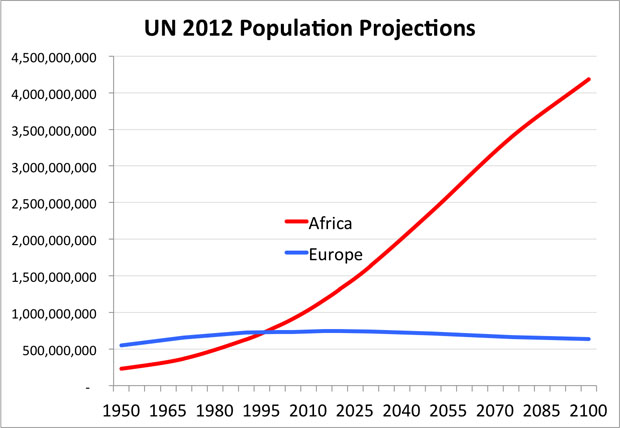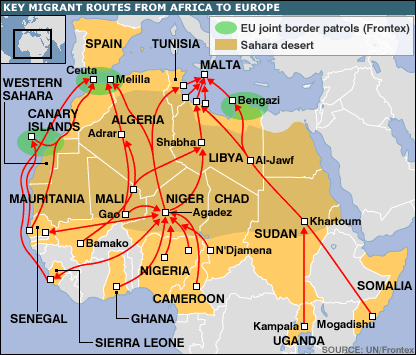Enormous population growth is forecast for Africa, where problems like soil depletion are already being exacerbated by too many people needing food resources.

Europe needs to understand that the surge of illegal immigration is not a temporary thing and will continue as long as Europeans allow it — to their great detriment.

CNN did a good job in recognizing the social downside to automation in the Third world and presenting it factually.
African countries are importing robots and young people’s jobs are at risk, By Torera Idowu, CNN, August 22, 2017Although still in its infancy, with under 60,000 imports a year, the robotics industry in Africa is developing rapidly.
In some parts of the continent, robots are mining, controlling traffic and even fighting deadly diseases.
Five years ago, The African Robotics Network launched a ’10 dollar robot’ challenge to encourage students to produce their own robots. There are also over 20 African organizations encouraging participation in robotics.
While this might offer the continent more affordable production costs, it has far-reaching consequences for Africa’s 1.2 billion people.
’Half of Africa’s jobs at risk’
A policy brief by the United Nations conference on trade and development reveals that robots will take away two-thirds of jobs in developing countries.
“The increased use of robots in developed countries risks eroding the traditional labor cost advantage of developing countries,” it states.
A 2016 study which stems from World Bank research, states that more than half of jobs in parts of Africa are at risk of automation with Ethiopia leading the highest proportion globally at 85%.